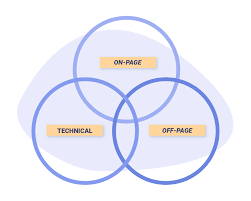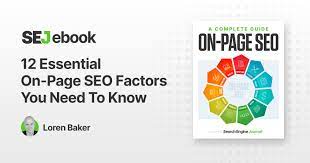Unveiling the Power of SEO Writing: What Is SEO Writing and Why It Matters
What is SEO Writing?
SEO writing, also known as search engine optimisation writing, is a specialised form of content creation that aims to make online content more visible to search engines and attract organic traffic. In simple terms, SEO writing involves crafting content that is not only engaging for human readers but also optimised for search engine algorithms.
The Purpose of SEO Writing
The primary goal of SEO writing is to improve a website’s ranking in search engine results pages (SERPs) for specific keywords or phrases. By incorporating relevant keywords strategically throughout the content, SEO writers aim to increase the likelihood of their pages appearing higher in search results when users query those terms.
Key Elements of SEO Writing
Effective SEO writing involves several key elements, including:
- Keyword Research: Identifying relevant keywords that are frequently searched by your target audience.
- Meta Tags: Optimising meta titles and descriptions to accurately reflect the content and attract clicks.
- Quality Content: Creating high-quality, informative, and engaging content that resonates with readers.
- Internal and External Links: Incorporating internal links to other pages on your website and external links to reputable sources.
- Readability: Ensuring that the content is easy to read and understand for both humans and search engines.
The Benefits of SEO Writing
By investing in SEO writing, businesses can enjoy a range of benefits, including:
- Increased Visibility: Higher rankings in SERPs can lead to increased visibility and exposure for your brand.
- Organic Traffic: Optimised content can attract more organic traffic from users actively searching for relevant information.
- Better User Experience: Quality SEO writing enhances the user experience by delivering valuable and relevant content.
- Built Credibility: Ranking well in search results can build credibility and trust with your audience.
In Conclusion
In today’s digital landscape, mastering the art of SEO writing is essential for businesses looking to improve their online presence and reach a wider audience. By creating well-crafted, optimised content that aligns with user intent and search engine guidelines, you can enhance your visibility, drive organic traffic, and ultimately achieve your digital marketing goals.
Seven Benefits of SEO Writing: Boosting Visibility, Rankings, and Audience Engagement
- Increased online visibility
- Higher rankings in search engine results pages (SERPs)
- Enhanced organic traffic to your website
- Improved user experience with quality content
- Established credibility and trust with your audience
- Cost-effective marketing strategy in the long term
- Ability to target specific audiences with tailored content
Challenges of SEO Writing: Time Investment, Keyword Overuse, Algorithm Shifts, and Intense Competition
Increased online visibility
Enhancing online visibility is a key advantage of SEO writing. By strategically incorporating relevant keywords and optimising content for search engines, businesses can increase their chances of appearing higher in search engine results pages (SERPs). This heightened visibility not only drives more organic traffic to the website but also boosts brand awareness and exposure to a wider audience. Improved online visibility through SEO writing can ultimately lead to greater opportunities for engagement, conversions, and long-term success in the digital landscape.
Higher rankings in search engine results pages (SERPs)
Achieving higher rankings in search engine results pages (SERPs) through SEO writing is a significant advantage for businesses seeking to enhance their online visibility. By strategically incorporating relevant keywords and optimising content for search engine algorithms, websites can secure prominent positions in SERPs, increasing the likelihood of attracting organic traffic and reaching a larger audience. Higher rankings not only drive more traffic to the site but also build credibility and trust with users, positioning the business as a reputable source of information within its industry.
Enhanced organic traffic to your website
By incorporating SEO writing strategies into your content, you can experience a significant pro in the form of enhanced organic traffic to your website. Optimising your content for search engines increases the visibility of your web pages in search results, making it easier for users to discover your site when searching for relevant information. This boost in organic traffic not only drives more visitors to your website but also attracts a targeted audience actively seeking the products or services you offer, ultimately leading to higher engagement and potential conversions.
Improved user experience with quality content
One of the key benefits of SEO writing is the enhancement of user experience through the delivery of high-quality content. By focusing on creating valuable and engaging material that meets the needs and interests of the target audience, SEO writing not only boosts search engine rankings but also ensures that users find relevant and informative content that resonates with them. This emphasis on quality content not only keeps visitors on the website longer but also establishes trust and credibility, ultimately leading to a more positive user experience and increased engagement.
Established credibility and trust with your audience
One significant advantage of SEO writing is the ability to establish credibility and trust with your audience. By consistently creating high-quality, informative content that ranks well in search engine results, you demonstrate expertise and reliability in your field. This helps to build a positive reputation for your brand, instilling confidence in your audience and fostering long-term relationships based on trust. As users encounter your content at the top of search results, they are more likely to view your brand as a reputable source of information, leading to increased loyalty and engagement over time.
Cost-effective marketing strategy in the long term
One significant advantage of SEO writing is its cost-effectiveness as a long-term marketing strategy. By creating high-quality, optimised content that ranks well in search engine results, businesses can attract organic traffic without the need for continuous investment in paid advertising. Over time, the cumulative effect of SEO efforts can lead to sustained visibility and increased website traffic, making it a valuable and economical approach to digital marketing that delivers lasting results.
Ability to target specific audiences with tailored content
One significant benefit of SEO writing is its ability to target specific audiences with tailored content. By conducting thorough keyword research and understanding the search intent of your target audience, SEO writers can create customised content that resonates with a particular demographic or niche. This targeted approach not only helps attract relevant traffic to your website but also enhances user engagement and conversion rates by delivering content that addresses the specific needs and interests of your intended audience.
1. Time-Consuming
One significant drawback of SEO writing is its time-consuming nature. Writers engaged in SEO writing must dedicate substantial time to conducting thorough keyword research, optimising content to align with search engine algorithms, and consistently updating their material to remain relevant and competitive. This meticulous process can be demanding and time-intensive, often requiring writers to strike a balance between creating quality content and meeting the technical requirements of search engine optimisation.
2. Keyword Stuffing
An important drawback of SEO writing is the practice of keyword stuffing, where writers excessively use keywords in an attempt to improve search engine rankings. However, this strategy often leads to content that sounds forced and unnatural, ultimately deterring readers from engaging with the material. By prioritising search engine algorithms over user experience, keyword stuffing can compromise the quality and readability of content, undermining the overall effectiveness of an SEO strategy.
3. Algorithm Changes
One significant drawback of SEO writing is the frequent changes in search engine algorithms. These algorithms are continuously evolving, posing a challenge for content creators to stay abreast of the latest SEO practices and requirements. As search engines refine their algorithms to deliver more relevant and accurate search results, writers must adapt their strategies accordingly, making it a constant battle to maintain visibility and rankings in an ever-changing digital landscape.
4. Competitive Landscape
In the realm of SEO writing, one significant challenge lies in the competitive landscape. As more and more businesses allocate resources to optimising their online content, distinguishing oneself and securing top rankings amidst a sea of competitors can prove to be a formidable endeavour. The saturation of the market with well-crafted SEO content intensifies the competition for visibility and audience engagement, making it essential for businesses to adopt innovative strategies and consistently refine their approach to stay ahead in the digital race.



